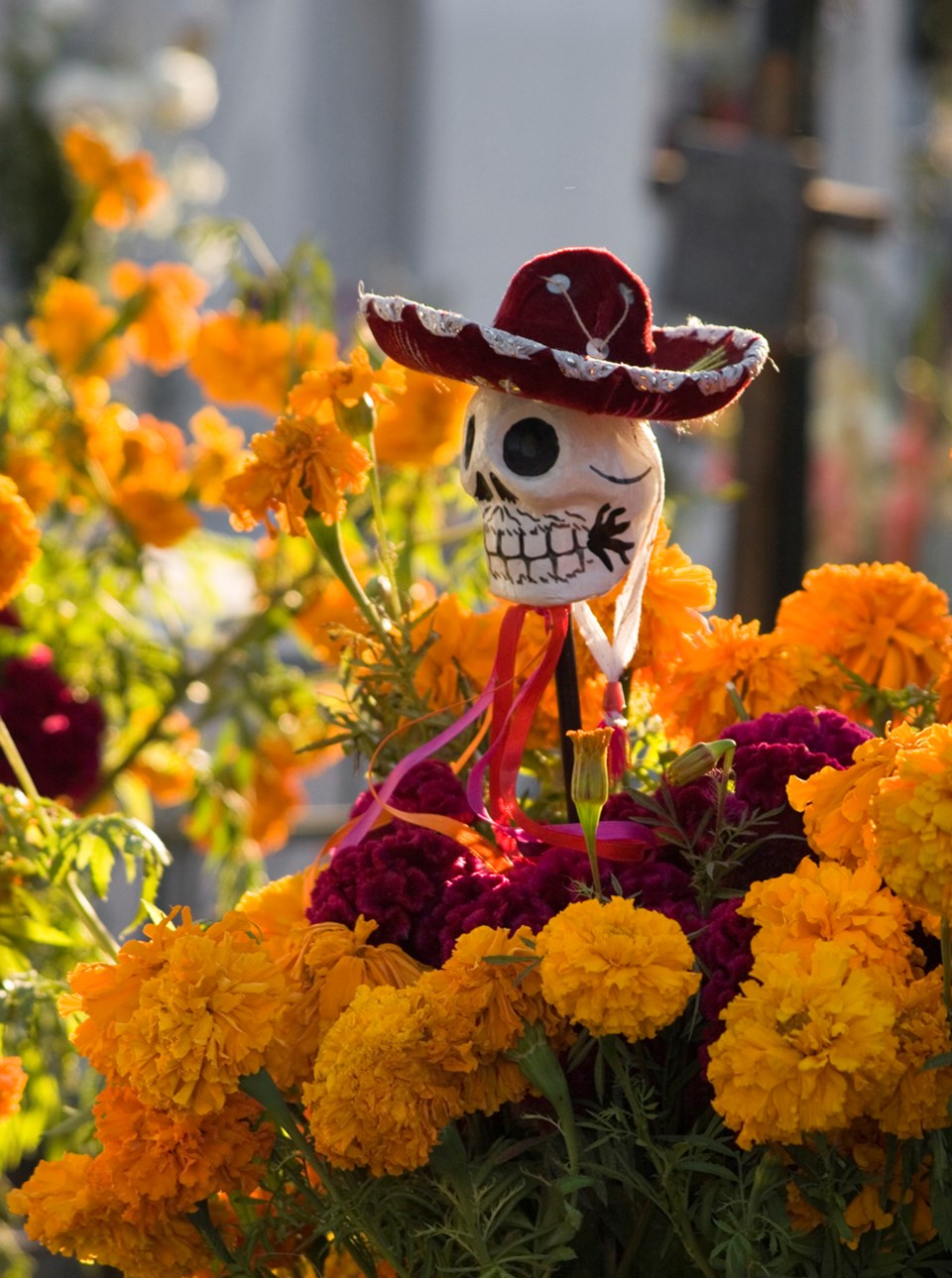When the sugar rush fades and the pumpkin implodes on your front step, you know Halloween has come to pass.
Avoiding the post-Halloween blues involves more than moderating our candy intake. Using this time to acknowledge the full life cycle of all things can be a healthy twist to our current glorification of ghoul and gore.
Usually, we don’t make much room for death and dying in western culture. Although inevitable, we are often ill-prepared to navigate its reality until it is upon us or those we love.
While other cultures practice more intimate witness of the passage of life – sitting with the body after the soul departs or more personal caregiving for the dying – we tend to distance ourselves. How odd is it that, at the same time, we witness violence and death in movies and video games with such disaffectedness? Is there something lost in our disconnect and distortion of death?
Perhaps Latin America has it most right. Dia de los Muertes (Day of the Dead) on November 1 – or for a full month back in the Aztec era - is a time to remember and honour loved ones who have passed. Candles and favourite foods adorn ofrendas (altars) and calaveras (skulls) are painted with flowers, hinting at what they will become as they return to the earth.
Rather than shy away from the end of life or stimulate blood-lust by glorifying malevolent forces, Dia de los Muertos celebrates life and also puts in plain sight the truth that all things pass. Death is not seen as the end, but rather the beginning of another phase.
Regardless of our personal spiritual understandings, we know that the death of a plant or animal in nature results in giving life to something else, including microbes in the soil. As much as we may shudder at the thought, we too will one day feed the earth.
Considering this, we might wonder at how we wish our bodies to be disposed of, green burial being an option in the qathet region at the Cranberry cemetery.
Becoming more comfortable with the cycle of birth, growth, death and decomposition in nature can help prepare us for our own full story as humans. Planting seeds, nurturing a garden, and composting food scraps and yard trimmings back into food for the soil are supposed to be part of being human.
Going zero waste, as many of us are acknowledging is the only truly sustainable way to live, involves considering the full life cycle of everything we interact with. While overwhelming at times, it’s important to know where our belongings come from and where they will go once released from our care. We should, in a sense, honour our dead-to-us possessions by disposing of them responsibly.
Composting food scraps and carved pumpkins (November 1 drop-off at Town Centre Recycling Depot, 9 am to 5 pm for donation to a local farm for animal feed) is a start. Donating clothes and retired costumes to thrift stores is another step.
Recycling candy wrappers at depots (not through curbside recycling) is part of it as well.
This All Hallows’ Eve, may we treat the earth well, rather than trick ourselves into believing that we are.
Let’s Talk Trash is contracted by qathet Regional District to offer its waste reduction education program. For more information, email [email protected] or go to LetsTalkTrash.ca.



